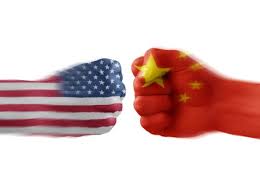
China is bidding to keep back the foreign investments and for this purpose the authorities there are tax breaks for foreign companies in response to the tax overhaul done in the United States recently.
This is the first time that China has reacted to the most recent tax reforms in Washington and the Beijing’s measures were announced late on Thursday. The communist government and leaders in China have made a number of promises to ensure that a number of industries are opened up to foreign investment and companies in an economy that has been traditionally dominated by state owned companies and one that is slowing down.
The finance ministry and tax agency said that under the latest tax cuts, foreign firms will not have to withhold taxes on profits which they reinvest in industries that have been specified by Chinese authorities. And the cuts are retroactive from January 1, 2017 which means that all tacollected this year would also be refunded to foreign companies.
Beijing wants to “attract foreign investors after a host of countries unveiled similar measures to lure foreign and domestic investment”, reported Xinhua.
The announcement noted that those foreign companies who reinvest their profits or parts of their profits into industries that have been identified in government investment catalogues would be eligible for the exemption. The industries identified include some fledgling fields in which Beijing is trying to develop technology, “green farming” and solar and wind power.
United States would see further investments, say proponents of the most recent tax reforms by Washington which was enacted this month. And consequently, money could be drawn away from economies like Canada and such warnings have been given out by some governments and private sector analysts.
There have been complaints by foreign companies that in emerging industries in China, they are often kept out of the most profitable areas or they are faced with pressure to give over their technologies to Chinese companies who have the potential to become their competitors. Therefore, many are unsure about any significant change happening in the decision of foreign firms to invest in the emerging industries due to the tax breaks.
There is reducing foreign enthusiasm in investing in China despite the fact that he country has been a hot bed for foreign investments for many years now.
Surveys by business groups have shown that companies have shifted emphasis to other Asian economies seen as more profitable or less restrictive. There are other Asian economies that are viewed tot be more attractive or less restrictive for foreign investors, recent surveys have found. On the scale of openness to foreing direct investment China has been ranked 59th out of 62 countries by the Organisation for Economic Cooperation and Development.
(Source:www.scmp.com)
This is the first time that China has reacted to the most recent tax reforms in Washington and the Beijing’s measures were announced late on Thursday. The communist government and leaders in China have made a number of promises to ensure that a number of industries are opened up to foreign investment and companies in an economy that has been traditionally dominated by state owned companies and one that is slowing down.
The finance ministry and tax agency said that under the latest tax cuts, foreign firms will not have to withhold taxes on profits which they reinvest in industries that have been specified by Chinese authorities. And the cuts are retroactive from January 1, 2017 which means that all tacollected this year would also be refunded to foreign companies.
Beijing wants to “attract foreign investors after a host of countries unveiled similar measures to lure foreign and domestic investment”, reported Xinhua.
The announcement noted that those foreign companies who reinvest their profits or parts of their profits into industries that have been identified in government investment catalogues would be eligible for the exemption. The industries identified include some fledgling fields in which Beijing is trying to develop technology, “green farming” and solar and wind power.
United States would see further investments, say proponents of the most recent tax reforms by Washington which was enacted this month. And consequently, money could be drawn away from economies like Canada and such warnings have been given out by some governments and private sector analysts.
There have been complaints by foreign companies that in emerging industries in China, they are often kept out of the most profitable areas or they are faced with pressure to give over their technologies to Chinese companies who have the potential to become their competitors. Therefore, many are unsure about any significant change happening in the decision of foreign firms to invest in the emerging industries due to the tax breaks.
There is reducing foreign enthusiasm in investing in China despite the fact that he country has been a hot bed for foreign investments for many years now.
Surveys by business groups have shown that companies have shifted emphasis to other Asian economies seen as more profitable or less restrictive. There are other Asian economies that are viewed tot be more attractive or less restrictive for foreign investors, recent surveys have found. On the scale of openness to foreing direct investment China has been ranked 59th out of 62 countries by the Organisation for Economic Cooperation and Development.
(Source:www.scmp.com)





